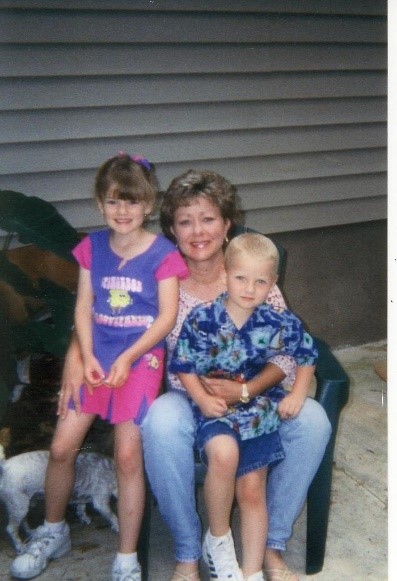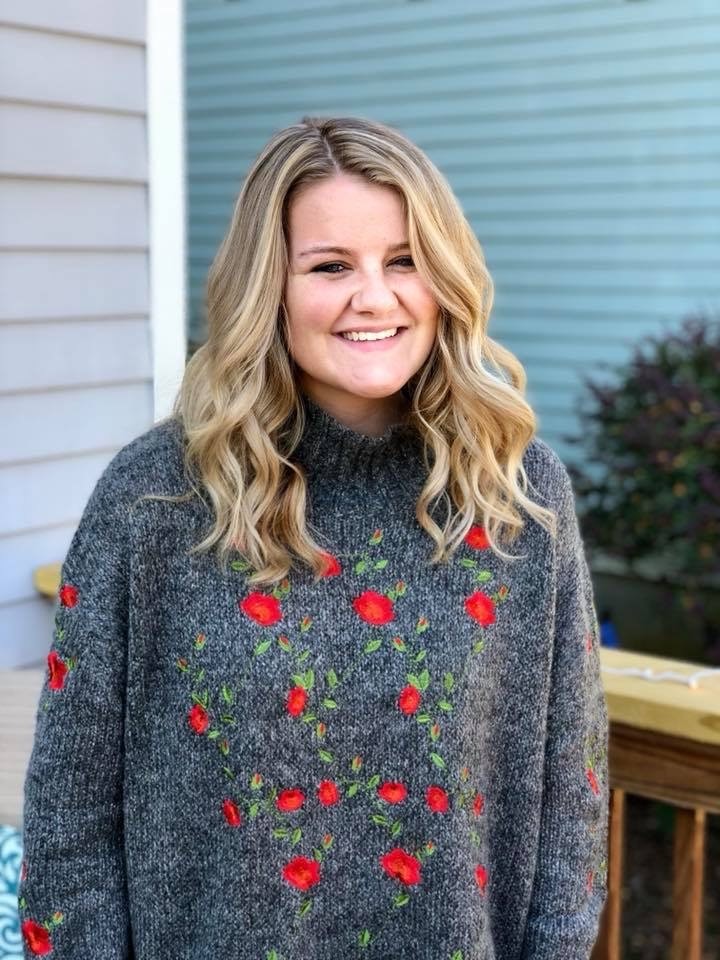Lessons Learned from Loss
I remember the day I found out like it was yesterday. Though I was only 10 years old, and that day was over 13 years ago, it’s not a moment I think I’ll ever forget. I was in the backseat of my dad’s burgundy Chevrolet pickup truck, sitting next to my baby brother. We were leaving the driveway of our old lake house in Greenville, South Carolina. My father and mother turned around and grabbed our hands and told us she had died.
Yvonne Prince was 42 years old. She was my birth mother. She was a woman of many gifts. She was intelligent. She was a lawyer. She wanted to travel and see the world. According to my father, she was an amazing piano player.
She was also a drug addict with chronic mental illness.
Since the day I can remember, my birth mother was in and out of rehab. Any memories I have with her and of her, she was never sober. I never really knew her, aside from her struggle with drugs. I know that when she was 13 years old, she started smoking marijuana that her father gave her. I know that when she was pregnant with me and my brother, she was addicted to prescription pills. Opioids. I remember when she started using meth, heroin. I remember the years of abuse and neglect.
I didn’t know until I was older that she had been diagnosed with Bipolar Disorder and Dissociative Identity Disorder.
I didn’t know until I was older that her parents supplied her with drugs. I didn’t know that every single time she attended rehab, she never got clean, because she was seeking and using drugs, given to her by people in her facility. That her AA and NA sponsor (who became my stepfather) was also her drug dealer.
When she passed away, at 10 years old, all I could feel was overwhelming relief. Relief that her suffering was over. Relief that my suffering, as well as my families, my brothers, was over. Yvonne was one of the many who never pulled away from that life. Who couldn’t, it seemed, despite my father’s best efforts. Despite countless rounds of rehab and 12-step programs. I’m not sure about her own efforts. I don’t really know what she truly wanted, other than to be escaping something through getting high. Maybe it was her mental illness. Maybe it was her upbringing. I will never know her reasons.
What I do know is that drugs can ruin lives. That addiction changes people. That untreated mental illness can lead to death. That it does not affect one individual, but each one around them. And I also know that there is hope for those that are struggling and want to change. There is always hope and a way to heal.
Efforts towards drug prevention and mental health serve to provide that hope and that help to individuals like Yvonne. The earlier we can reach someone, the more likely that person will succeed in living a sober, and healthy life. There’s never such a thing as being too far gone. I don’t think Yvonne was. But I do think that she believed there wasn’t another life for her – I think what she had was all she had really known. I think she had lost hope.
When people pass away, sometimes this “halo effect” happens. The only thing that people remember or talk about is the positives. They don’t discuss the negatives or the struggles. This happened with Yvonne. As a young child, it confused me. My parents talked to me about it. I knew her struggles and why she died. But no one else would even admit that it was the eventual cause of her death. She died in a car crash caused by purposeful overdose. But on no certain terms was this to be spoken of. In that very small town, where everyone knew what Yvonne struggled with, it became the most forbidden topic. No one admitted the fact that she was a drug addict. No one acknowledged her mental illness.
This week is National Prevention Week. It is also Mental Health Month.
Avoiding the conversation is not how we provide hope. It is not the way that we provide help. It’s the opposite. Keeping drug addiction and mental illness swept under the rug will only continue to force people like Yvonne into corners where there seems to be no escape. We have to talk about it. We have to be kind to those who are struggling and love those who need our help. There’s a reason that it is called prevention and that is because through conversations and unified efforts, we can save lives. Whether this be by educating not to start drugs at all, or letting others know of the effective resources available for those who struggle.

This starts when we start to have those conversations. When we can admit that these issues exist, and we can help people see the light, the hope and the full lives that lie ahead of them. There is always hope, and a healthy and happy life that can be led drug free and by managing mental illness. But we need to be able to talk about it first.
If you know someone who is struggling, reach out to them. If you have a loved one who has died due to drug overdose, speak up. You never know whose life you can save by choosing to admit, accept, and be honest with that person and those around them. Their fight only stops when we do.
 Sarah Waldrop is the Southeast Regional Coordinator at the Mental Health Association of East Tennessee. Sarah’s passionate about working at MHAET because she wants to promote and educate on the importance of mental health and early intervention. Sarah most enjoys building a strong community network, and hearing the stories from students that she gets to teach. She lives in Chattanooga with her fiancé, Nate, and their two dogs, Brodie and Bella. Sarah practices self-care daily through fitness and quality time spent outdoors with her family.
Sarah Waldrop is the Southeast Regional Coordinator at the Mental Health Association of East Tennessee. Sarah’s passionate about working at MHAET because she wants to promote and educate on the importance of mental health and early intervention. Sarah most enjoys building a strong community network, and hearing the stories from students that she gets to teach. She lives in Chattanooga with her fiancé, Nate, and their two dogs, Brodie and Bella. Sarah practices self-care daily through fitness and quality time spent outdoors with her family.



